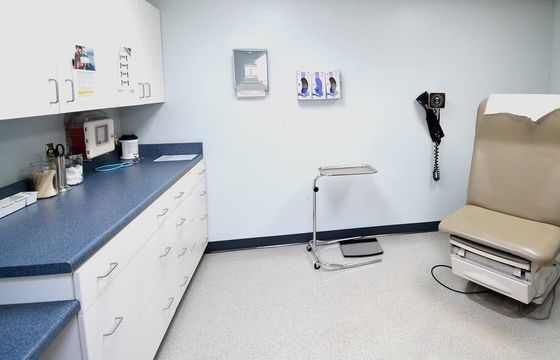General Surgeon for You

We perform many procedures laparoscopically which is to your benefit:
- Operations require much smaller incisions than traditional open surgery.
- Post-operative pain is usually minimal.
- Recovery time is faster & patients enjoy a quicker return to normal activities.
- Most surgeries can be done on an outpatient basis & for those that require a hospital stay, many patients go home within one day after surgery.
We offer the most advanced surgical options for patients, treating cases from routine to medically complex. Our physicians are board certified and qualified to handle a wide range of general surgeries, in addition to procedures related to our individual specialty areas. Read more below on the benefits of our services and some of the conditions we treat.
Gallbladder Removal
Gallbladder removal is one of the most commonly performed surgical procedures. Gallbladder issues usually stem from the presence of gallstones: small hard masses consisting primarily of cholesterol and bile salts. Through an ultrasound or a CT/Papida scan, we can quickly identify gallstones or reduced ejection fraction and recommend a treatment option. Gallstones don't go away on their own and can possibly block the flow of the bile out of the gallbladder. This causes the gallbladder to swell and results in sharp abdominal pain, vomiting, indigestion and sometimes fever. Surgical removal is the safest treatment.
Our surgeons perform this procedure laparoscopically, which requires only four small openings in the abdomen rather than the traditional five to seven inch incision.
Lipoma Removal
Lipomas are a common, benign tumor composed of fatty tissue that can develop in anyone. They're often soft to the touch, sometimes moveable and are generally painless. Many patients have them removed for cosmetic reasons or because they restrict movement. If not too large our surgeons can remove lipomas in the office with just a simple excision and lower the likelihood of re-growth. Larger lipomas can be removed safely in an OR setting.
Hiatal Hernia Repair / GERD
Many people suffer from GERD or acid reflux which causes a frequent burning-type pain in the lower part of the mid-chest, behind the breast bone, and in the upper abdomen. Other symptoms include irritated throat, hoarseness, coughing during the night and morning, recurrent pneumonia, etc. For some, this heartburn or acid indigestion can be relieved through the use of lifestyle changes and medication, while others require surgery. There are several methods we can use to help pinpoint the exact problem and will be useful for surgery.
- Barium Swallow Radiograph uses x rays to help spot abnormalities such as a hiatal hernia and other structural or anatomical problems of the esophagus.
- Upper Endoscopy is more accurate than a barium swallow radiograph to evaluate the inner lining of the esophagus. A gastroenterologist performs this study.
- pH Monitoring: Examination involves either inserting a small tube into the esophagus or clipping a tiny device to the esophagus that will stay there for 24 to 48 hours. While you go about your normal activities, the device measures when and how much acid comes up into your esophagus. This procedure is often done to help detect whether respiratory symptoms, including wheezing and coughing, are being triggered by reflux.
Hernia Repair / Abdominal Wall Reconstruction
Hernias most commonly occur in the groin (inguinal), belly button (umbilical) or the site of a previous operation (incisional/ventral). Typically signaled by pain that's sharp and immediate or a dull ache that gets worse toward the end of the day, hernias can develop in anyone at any age. Patients often notice a bulge under the skin or feel pain when standing or sitting for long periods of time, lifting heavy objects, coughing, and during urination or bowel movements.
During an in-office exam, our physicians can determine if a hernia exists and what repair is right for you.
Breast Diseases
Early detection of breast conditions can minimize your risk of developing more advanced breast cancer. Mammograms are useful for women who have noticed a hard lump, thickening or any change in their breast tissue. When you see us, our board-certified physicians will take time to review and talk with patients and can recommend which surgical option would best treat your condition:
-
Lumpectomy or partial mastectomy (excisional biopsy) - a breast-conserving procedure which involves the removal of a tumor and surrounding tissue with or without axillary lymph node dissection.
-
Simple or total mastectomy - the entire breast is removed.
-
Modified radical mastectomy - removal of the entire breast along with underarm lymph nodes.
Head and Neck Conditions
- Thyroid tumor evaluation and treatment including consultation, fine needle aspiration and thyroid removal if necessary.
- Parathyroid tumor.
- Neck node biopsy and removal.
Stomach, Small and Large Intestine
- Ulcer treatment
- Tumor removal
- Obstruction release, etc.
- Colostomy placement and takedown


